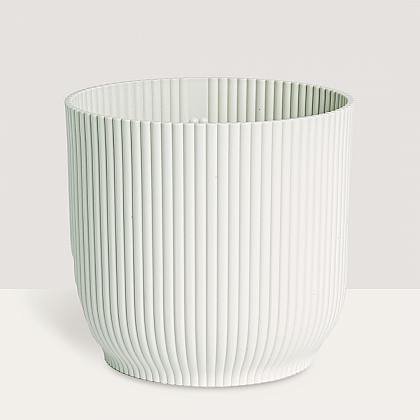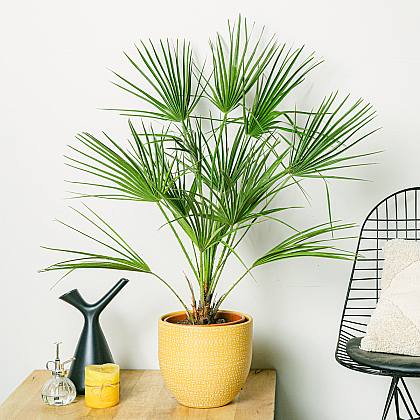Discover the Secrets to Thriving Organic Flower Gardens
Are you ready to unlock the secrets to creating a thriving organic flower garden? Look no further! In this article, you'll discover invaluable tips on nurturing

Are you ready to unlock the secrets to creating a thriving organic flower garden? Look no further!
In this article, you'll discover invaluable tips on nurturing and maintaining a flourishing flower bed using organic methods. By choosing to grow your garden organically, you benefit yourself, the critters that will visit, and the environment as a whole.
From cleaning up after winter to understanding plant exposure requirements, get ready to dive into the wonders of organic flower gardening and create a garden that brings joy and beauty for years to come.
Flower Bed Care and Maintenance
To ensure the health and beauty of your organic flower garden, proper flower bed care and maintenance is crucial. Here are some tips to help you maintain your flower beds effectively.
Firstly, consider flower bed design ideas that suit your garden's layout and aesthetic. You can create beautiful arrangements by mixing different flower varieties, colors, and heights.
Secondly, organic pest control methods play a vital role in keeping your flower beds healthy. Use natural remedies like neem oil, companion planting, and insect-repelling plants to deter pests without harming the environment. Regularly inspect your plants for signs of pest damage and take appropriate action.
Tips for Successful Organic Gardening
Maintain a thriving organic flower garden by implementing these essential tips for successful organic gardening.
One crucial aspect of organic gardening is organic pest control. Instead of relying on harmful chemicals, use natural methods to keep pests at bay. Introduce companion planting, which involves planting certain flowers or herbs that repel pests, alongside your main flowers. For example, marigolds can deter aphids, while lavender can repel moths.
Additionally, practicing good garden hygiene by keeping your flower beds clean and free from debris can help prevent pest infestations. Regularly inspect your plants for any signs of pests or diseases, and address them promptly using organic solutions.
Soil Preparation and Composting Tips
Prepare your soil and compost to ensure healthy growth and nourishment for your organic flower garden. Before planting, it is important to test your soil to determine its pH level and nutrient content. This will help you understand what amendments your soil needs. Conduct a soil test and make adjustments accordingly. To improve soil structure and drainage, aerate the soil by loosening it with a garden fork or tiller. Incorporate organic matter, such as compost or well-rotted manure, into the soil to enhance its fertility. This will provide essential nutrients for your flowers to thrive. Consider using organic fertilizers, such as compost tea or seaweed extract, to further nourish your plants. Regularly composting your beds will also help replenish nutrients and support the overall health of your flower garden.
| Soil Preparation and Composting Tips |
|---|
| Conduct a soil test to determine pH and nutrient levels |
| Aerate the soil for better root growth |
| Incorporate organic matter for fertility and drainage |
Specific Care and Considerations for Organic Flower Gardens
When caring for your organic flower garden, it's important to regularly prune your plants to promote repeat or continued bloom. Here are some specific care and considerations to keep in mind:
Preventing pests organically: Use natural methods such as companion planting, beneficial insects, and homemade organic sprays to keep pests at bay.
Maximizing flower blooms: Deadhead spent flowers regularly to encourage new blooms. Also, provide proper sunlight, water, and nutrients to promote healthy growth and abundant blooms.
Chamaerops humilisMediterranean beauty49.00 €Keep flower beds clean: Regularly remove any fallen leaves, debris, or dead stalks to prevent diseases, viruses, and insects from spreading.
Avoid chemical pesticides: Instead, opt for organic pest control methods such as neem oil, insecticidal soaps, and homemade remedies.
Spring care: Start seeds, prune, clean up, and prepare your flower beds for the upcoming growing season. Container gardening can also be a great option for organic flower gardening.
The Importance of Pruning in Organic Flower Gardening
To ensure healthy growth and abundant blooms in your organic flower garden, regular pruning is of utmost importance. Pruning not only helps maintain the shape and size of your plants, but it also promotes stronger growth and better flowering.
When it comes to pruning techniques, it's essential to know the specific requirements of each plant. Some plants may benefit from a light pruning, while others may require more drastic cuts.
As for the pruning schedule, it's generally recommended to prune flowering plants after they've finished blooming or during their dormant season. This allows the plants to recover and prepare for the next flowering cycle.
Container Gardening for Organic Flower Gardens
Enhance your organic flower garden with the versatility and convenience of container gardening. This method offers several benefits for your garden:
- Portability: Move containers around to find the perfect spot for your flowers.
- Space optimization: Utilize small spaces like balconies or patios for your flower garden.
- Pest control: Containers can be easily protected from pests and diseases.
- Soil control: Ensure the right soil composition for each flower by using different potting mixes.
- Organic fertilizers for containers: Use natural fertilizers like compost, worm castings, or fish emulsion to nourish your flowers.
When choosing organic fertilizers for containers, consider ones that are specifically formulated for potted plants. Look for options that are rich in nutrients and free from synthetic chemicals.
In conclusion, by incorporating organic methods into your flower gardening practices, you can create a beautiful and thriving garden that benefits both you and the environment.
From proper care and maintenance to understanding the needs of your plants, soil preparation, and composting, these secrets will guide you towards success.
Remember the importance of pruning and consider container gardening for added versatility.
With these tips, you can enjoy the wonders of organic flower gardening for years to come.


